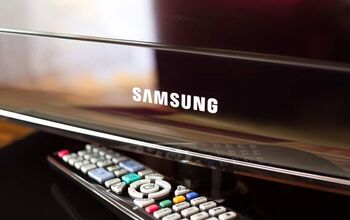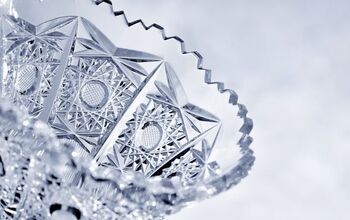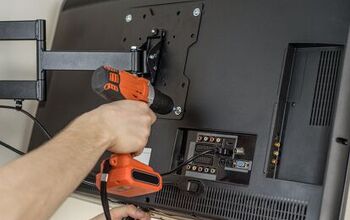Can You Recycle Rusted Metal? (Find Out Now!)

Mother Nature has a way of ruining metal that is exposed to moisture. Rust is the first sign that metal is breaking down into oxides. Now you need to figure out what to do with it, so can you recycle rusted metal?
Rusted metal can be recycled. The exceptions are metal cans that store motor oil and paint. You cannot recycle metal that contain mercury and other toxins. This includes metals from televisions, computers, cookware, smart devices, vehicle parts, and propane tanks. Sell the metal to a salvage yard. Rusted metal is a great medium for DIY crafts.
Let’s take a closer look at metal recycling, as well as some alternative uses for rusted metal.
What Metals Can Be Recycled?
You’d be surprised at how many types of metal can be recycled. Recycling metal has come a long way since it was first introduced only for aluminum cans. Here are some of the metals that you can recycle.
- Steel: Steel is the most common type of metal that is used for commercial, industrial, and residential applications. It is used for appliances, framing of large structures, vehicle parts, and much more.
- Aluminum: Aluminum is one of the most well-known recyclable metals. It is used in a range of applications, such as soda cans, bicycle frames, boats, and other items.
- Brass: You know those old, outdated brass decorative elements in your home? They can be recycled. Brass is also used in plumbing. Brass is made by combining zinc and copper, and it is 100% recyclable.
- Lead: Lead isn’t as used as much as other types of metal, but you can find it in old pipes and vehicles. It is another of the metals that is 100% recyclable.
- Iron: Iron, including cast iron, can be recycled. It is used for fences, kitchen sinks, and other items.
- Copper: Copper is one of the most desirable of recyclable metals. One of the most common places to find copper is in the wiring of your home.
- Stainless Steel: Combine nickel and steel, and you have stainless steel. The metal is used for appliances, vehicle parts, and more.
- Bronze: Bronze is a combination of metals that resembles brass. You can find bronze in statues and decorative elements for homes.
What Metals Cannot Be Recycled?
Almost any type of metal that can be accessed by the average consumer can be recycled. There are, though, certain types of metal objects that cannot be recycled. Metal cans that hold toxic substances, such as paint and motor oil, cannot be recycled.
You cannot recycle your pots and pans, and propane tanks are also restricted from recycling. Any metal items that contain mercury can’t be recycled. Vehicle parts, computers, monitors, smart devices, and televisions require some special handling when it comes to recycling.
Can You Recycle Rusted Metal?
Rusted metal is 100% recyclable. The rust doesn’t interfere with the recycling process. You don’t even have to clean the metal before you drop it off for recycling.
Considerations for Recycling Rusted Metal
If you use a recycling center that pays for metals, any rust affects the value of the scrap. Rust destroys metal, and this means that the item now weighs less. The recycling center or salvage yard will pay you by weight. You may make less on a rusted piece of metal than the same item without rust.
Do You Get Paid for Recycling Metal?
Most recycling centers don’t pay for you to drop off items. If you want to make some money on your old rusted metal, take it to a salvage yard. They will pay you based on the type of metal and weight.
Can You Throw Out Rusted Metal?
Throwing out rusted metal is not the best idea. Metal objects quickly fill up landfills. Additionally, you lose out on making some money from your rusted metal items.
Is Rusted Metal Biodegradable?
Metals take 50 to 500 years to break down, so they are not biodegradable. Because they take so long to break down, metals are not considered good for the environment.
How Do You Remove Rust from Metal?
Sandblasting is the best way to remove rust from metal. If you have just a small amount of rust to remove, use a mixture of baking soda and water. Combine to make a thick paste. Cover the rust spots with the paste, and let it sit for about 60 minutes. Scrub away the baking soda and rust with a wire brush.
Is Rusted Metal Useful?
Rusted metal is very useful. Scrap metal is highly desirable, and many people like the aesthetics for artwork and sculptures. If you are feeling a little crafty yourself, here are some great ways to use rusted metal in your backyard.
- Outdoor firepit enclosure
- Geometric plant wall
- Plant containers
- Garden spheres
- Trellises
- Outdoor fountain
- Wind chimes
- Fencing
How to Prepare Rusted Metal for Projects
You want to retain as much of the rusted appearance of the metal as possible. Sand the surface to make it smooth. You can leave the metal bare, and it will continue to rust outdoors. Alternatively, apply a layer of rust protector to the item. This preserves the look and gives the surface a slight sheen.
Related Questions
Should you replace lead pipes?
Lead pipes should be replaced with copper pipes. The lead in the pipes leeches into the water. Drinking water that contains lead has been linked to several medical issues.
Is copper wiring safe?
Copper is one of the safest metals to use for wiring. It resists breaking and damage, and this reduces the risk of electrical fires in your home. Copper is also very valuable. You can sell old copper wiring to a salvage yard.
Conclusion
Before you toss out those old, rusted metal items around your home, have them recycled. Rusted metal is also very attractive for outdoor decorative elements. Trying to find a use for rusted metal or selling it to a salvage yard is much better than putting it in the landfill. Discarded metal lasts 50 to 500 years, so it will be sitting in the dump for many generations.
Related Guide

Jennifer L. Eggerton loves being hands-on, whether it's with a home DIY project, making repairs, re-decorating a room, or keeping life organized. She enjoys helping people by sharing her knowledge, insights, and experiences, as well as her lessons learned. In addition to her work as a writer, Jennifer is a Jeep® overlander, self-published author, and nature photographer who loves being outdoors.
More by Jennifer Eggerton



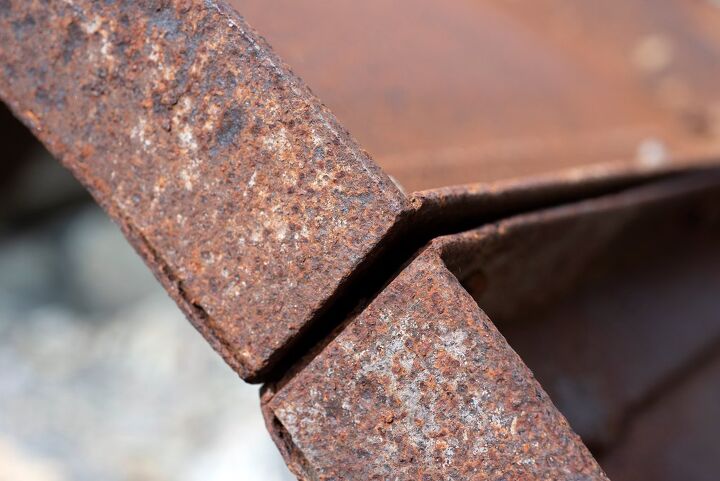






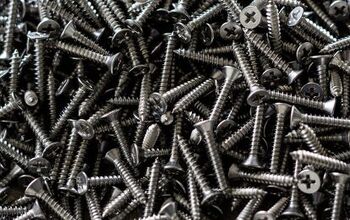


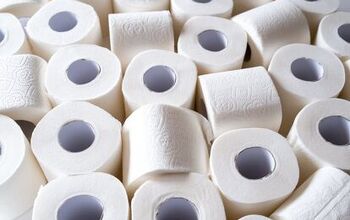
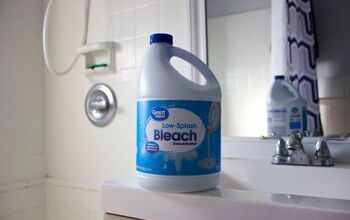



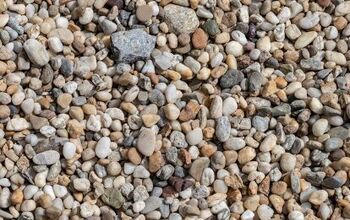

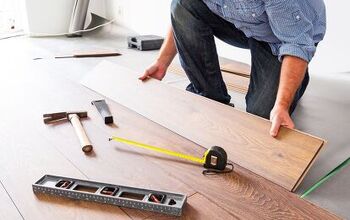
![How To Reset A Whirlpool Cabrio Washer [In 5 Easy Steps!]](https://cdn-fastly.upgradedhome.com/media/2023/07/31/9076531/how-to-reset-a-whirlpool-cabrio-washer-in-5-easy-steps.jpg?size=350x220)
